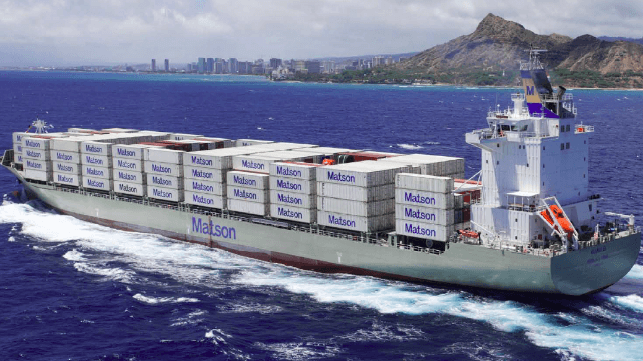Matson Suspends Shipping EVs Citing Hazards of Lithium-ion Batteries

Matson surprised customers this week with an announcement that, effective immediately, it would suspend transporting battery-powered electric or plug-in hybrid electric vehicles due to the hazardous material classification of their lithium-ion batteries. The ability to ship cars between the mainland of the United States, Hawaii, Guam, and Alaska was an important service both for individuals and car dealers.
In a letter sent to customers, the company writes, “Due to increasing concern for the safety of transporting vehicles powered by large lithium-ion batteries, Matson is suspending acceptance of used or new electric vehicles (EVs) and plug-in hybrid vehicles for transport aboard its vessels. Effective immediately, we have ceased accepting new bookings for these shipments to/from all trades.”
The Hawaii Electric Vehicle Association reports there are currently more than 37,000 electric vehicles registered in the state. No figures were reported for Guam, but dealers who spoke with the local media said they regretted the decision, highlighting that EVs are well-suited for driving on the island.
Matson had reported in the past that it had developed a collaborative team approach to tackle the complexities of carrying lithium batteries. It established an Electric Vehicle Safe Carriage Working Group, and said it was participating in external working groups on electric vehicles and lithium batteries.
Shoreside, it said, Lithium Battery Handling Procedure included a review process and a used battery shipment checklist, while for vessels, it developed procedures on how to fight lithium fires and how to prevent them from occurring. This included proper stowage, the use of new tools like thermal imaging cameras to see temperature spikes, and the deployment of the Viking HydroPen, a firefighting tool that replaces the traditional water mist lance and is designed to drill into containers and extinguish fires.
In the letter to customers, it writes, “Matson continues to support industry efforts to develop comprehensive standards and procedures to address fire risk posed by lithium-ion batteries at sea and plans to resume acceptance of them when appropriate safety solutions that meet our requirements can be implemented.”
Reports are citing the recent fire aboard the Morning Midas off the Aleutians and the loss of the vessel, which was carrying EVs and hybrids. It was at least the third major casualty that was linked to EV fires after the fire aboard the Fremantle Highway in 2023 and the loss of the Felicity Ace in 2022. The industry has worked to develop new standards for the transport of EVs and lithium-ion batteries, but in Matson’s case, it has the added danger of container fires because it transports cars placed into boxes, limiting the ability to monitor the vehicles versus car carriers, where they are loaded in large garage-type spaces.

that matters most
Get the latest maritime news delivered to your inbox daily.
Matson continues to transport conventional cars. It offers the service both trans-ocean and also moves the containers interisland in Hawaii as part of its barge service.
